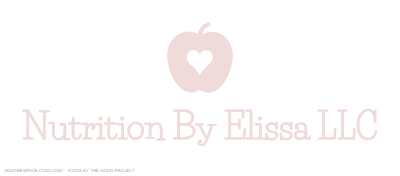Every woman who has PCOS knows the struggle. Imbalances in hormones and metabolism present daily challenges with blood sugar regulation and chronic low-grade inflammation. PCOS is not a lonely struggle either, for it affects 1 in 10 women of childbearing age.
For someone who is frustrated with her PCOS, trendy diets may offer a glimmer of hope: perhaps the carb-free keto diet or grain-free paleo diet will alleviate these symptoms and help me lose weight? Though these approaches seem attractive, there is little evidence that prohibitive diets work, particularly over time. Completely cutting out carbs or fats doesn’t have immense health benefits, and indeed, restricting intake can actually lead to a stress response from the body.
When it comes to dieting, the bottom line is that the diets fail, not the individual. Their restrictive nature makes it inherently impossible to maintain in the long-term. It’s natural for the body to desire the types and levels of food it normally receives. Furthermore, a uniform, prescribed diet approach to health for everyone is simply unrealistic, nor feasible. Rather than cut and restrict intake to improve health, it’s far more important to diversify food sources and get sufficient levels of nutrients.
This mantra is echoed in the principles of non-diet frameworks, which are significantly better for our physical and mental health. Both Intuitive Eating (IE) and the Health At Every Size (HAES) approach advocate for rejecting the diet mentality and embracing self care health promoting behaviors instead of restriction. With these frameworks, people are empowered to listen to the signals the body sends, and learn how to properly address those signals.
IE shows potential for people with PCOS. In one web-based study, a representative sample of 120 women with PCOS completed a survey about dietary behaviors and self-efficacy. Results indicated that 89% of respondents had previously tried traditional diets. But the most interesting result was that a significant, positive relationship existed between high adherence to IE and confidence in maintaining healthy habits, like trusting hunger and satiety signals. The authors suggested that more sustainable, beneficial changes in diet are possible when people follow the IE framework.
Like IE, the HAES approach can be tailored to women with PCOS too. It condemns the idea that weight status is synonymous with health and encourages followers to focus more on what works for them. This means freely eating the foods that help manage PCOS symptoms, and paying more attention to ovulation changes, blood sugar levels, and mood than the number on the scale.
IE and HAES offer real, achievable solutions to living with PCOS. Unlike diets, these frameworks celebrate individuality and value body knowledge. Learning to be aware of the signals the body sends, the foods that taste good, as well as the movements that ease symptoms is a sustainable and effective way to live with PCOS. If you’re interested in learning more about identifying these things for yourself, get in touch with a HAES dietitian specializing in PCOS and discuss how to apply non-diet frameworks to your lifestyle.
